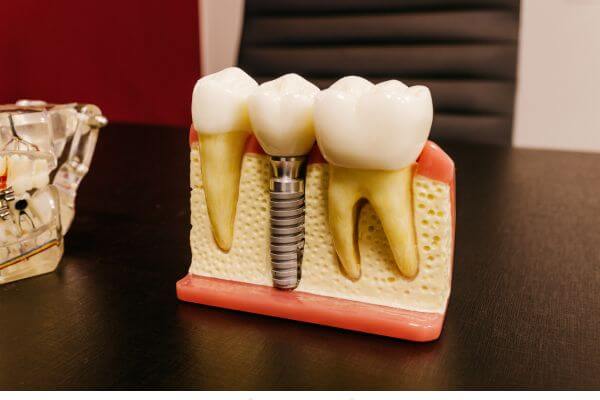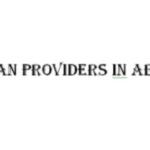Is tooth tooth extraction cost Without Insurance really costly? Tooth extraction is one of the most common dental procedures, performed when a tooth is severely damaged, decayed, or causing other dental complications.
While tooth extractions are often necessary for oral health, the costs associated with this procedure can be a concern—especially for those without insurance.
This article explores the financial aspects of tooth extraction, including average costs, different extraction types, and ways to manage expenses.
What is Tooth Extraction with Insurance?

Tooth extraction with insurance typically involves partial or full coverage of the costs depending on your dental plan.
Many insurance providers cover a portion of the procedure if it is medically necessary, such as for severe tooth decay, gum disease, or orthodontic preparation.
Coverage often includes diagnostic services like X-rays and part of the extraction cost itself, but it’s essential to understand your policy’s specific terms, deductibles, and annual limits. With insurance, patients often pay significantly less out of pocket.
How Much Does a Tooth Extraction Cost?
What is the Average Cost of a Tooth Extraction?
The average cost of a tooth extraction varies based on several factors, including the type of extraction, the complexity of the procedure, and the geographic location of the dental office. On average, you can expect to pay:
- Simple Extraction: $75 to $250 per tooth.
- Surgical Extraction: $225 to $600 per tooth.
- Wisdom Tooth Removal: $225 to $1,100 per tooth, depending on complexity.
These averages cover the dentist’s or oral surgeon’s fees but may not include additional costs like X-rays or sedation.
What are the Different Types of Tooth Extraction?
Simple Extraction
A simple extraction is performed on teeth that are fully erupted and visible in the mouth. It is a straightforward procedure that typically requires only local anesthesia.
Dentists use specialized tools to loosen the tooth and remove it. Costs range between $75 and $250 per tooth, making this the most affordable extraction type.
Surgical Extraction
Surgical extractions are more complex and are required for teeth that are impacted, broken, or not fully erupted.
This procedure involves an oral surgeon making an incision in the gum and possibly removing bone around the tooth before extraction.
Surgical extractions range from $225 to $600 per tooth, but costs can increase if additional steps, like bone grafting, are needed.
Need Dental Coverage?
While dental insurance can significantly reduce costs, not everyone has access to coverage. If you lack insurance, consider alternative options like dental discount plans, payment plans, or community dental clinics to make the procedure more affordable.
How Much Does a Wisdom Tooth Removal Cost?
Wisdom tooth removal is a specialized type of extraction, often required when the teeth are impacted or causing alignment issues. Costs range widely:
- Simple Wisdom Tooth Extraction: $225 to $300 per tooth.
- Surgical Wisdom Tooth Extraction: $300 to $1,100 per tooth.
These prices depend on factors like the tooth’s position, the complexity of the extraction, and the type of anesthesia used. For those without insurance, the overall cost of removing all four wisdom teeth can range from $1,000 to $3,000.
How Much is a Tooth Extraction with Insurance?

Dental insurance can significantly reduce the cost of a tooth extraction. Most plans cover 50% to 80% of the procedure if it is medically necessary. For example:
- Simple Extraction: With insurance, you might pay $20 to $100 out of pocket.
- Surgical Extraction: Out-of-pocket costs typically range from $100 to $300, depending on your policy.
Be aware that some plans have annual caps on coverage, often between $1,000 and $2,000, which can impact the total amount covered.
How Much Does a Tooth Extraction Cost Without Insurance?
Without insurance, the cost of a tooth extraction can be a significant expense. On average:
- Simple Extraction: $75 to $250 per tooth.
- Surgical Extraction: $225 to $600 per tooth.
- Wisdom Tooth Removal: $300 to $1,100 per tooth.
If additional services like X-rays ($100-$250) or sedation ($200-$1,000) are needed, the total cost can quickly rise. Patients without insurance should consider options like payment plans or seeking care at dental schools to reduce expenses.
What are Other Costs Associated with Tooth Extraction?
In addition to the extraction itself, several other costs may apply:
- X-rays: $100 to $250 to assess the tooth and surrounding structures.
- Sedation/Anesthesia: $40 for nitrous oxide, $250 to $800 for IV sedation, and $400 to $1,000 for general anesthesia.
- Medications: Post-operative prescriptions for pain relief or antibiotics can cost $10 to $50.
- Follow-Up Visits: $50 to $200, particularly if complications arise such as infections or dry socket.
Why Would I Need a Tooth Extraction?
There are several reasons why a tooth extraction might be necessary, including:
- Severe Tooth Decay: When a tooth is too damaged to be repaired with a filling or crown.
- Gum Disease: Advanced periodontitis can loosen teeth, requiring removal.
- Overcrowding: Extracting teeth is sometimes necessary to make space for orthodontic treatment.
- Impacted Teeth: Wisdom teeth that don’t erupt properly can cause pain and alignment issues.
- Infection or Abscess: When infection threatens surrounding teeth or overall health, removal is often the best option.
How long does it take to recover from a tooth extraction?
Recovery time varies based on the type of extraction. Simple extractions typically heal within 7 to 10 days, while surgical extractions may take up to 2 to 3 weeks.
Proper aftercare, including rest and following your dentist’s instructions, can speed up healing.
Are there risks associated with tooth extractions?
While generally safe, tooth extractions carry some risks, including dry socket, infection, excessive bleeding, or nerve damage. Choosing a qualified dentist or oral surgeon and adhering to post-operative care instructions can minimize these risks.
Can I reduce the cost of tooth extractions?
Yes, several strategies can help lower costs, including:
- Visiting dental schools.
- Using dental discount plans.
- Seeking care at community health clinics.
- Asking about payment plans or financing options.
Conclusion
Tooth extraction is sometimes unavoidable, but the cost can be managed with proper planning and research.
Whether you have insurance or not, understanding the factors influencing costs and exploring affordable care options can make the procedure more accessible.
From simple extractions to complex surgical removals, being informed about pricing, alternative options, and post-operative care ensures a smooth experience.
Always consult your dentist or oral surgeon to determine the best approach for your specific needs and budget.










